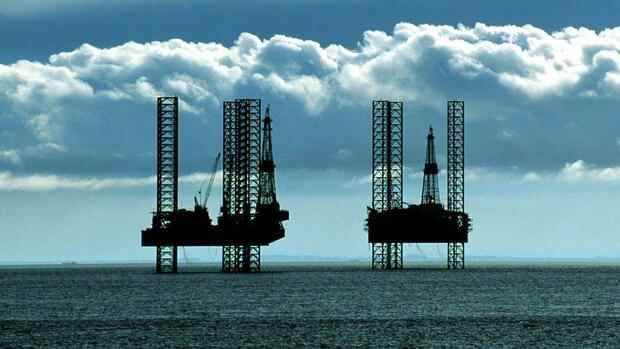Rob Jetten, Energy Minister of the Netherlands, announces an increase in natural gas production in the North Sea and wishes Germany to follow suit. In doing so, he increases the pressure on the Berlin traffic light coalition to accept new funding projects in the North Sea. “We support companies that want to produce gas in the North Sea. We want to speed up this process now,” Jetten told Handelsblatt.
“In an ideal world, we would not develop any new gas fields in the North Sea. But the situation makes it necessary,” he said. “Unfortunately, we have not yet reached an agreement with our German partners on this issue,” said Jetten, who met with Federal Minister of Economics Robert Habeck (Greens) in Berlin at the beginning of the week.
The Netherlands and Germany have been arguing for months about whether or not to expand gas production in the North Sea. The project of the Dutch company One-Dyas has become a precedent.
One-Dyas wants to develop a gas field in the German-Dutch border area of the North Sea, the volume of which is estimated at 60 billion cubic meters. The value corresponds exactly to the amount of gas that flowed from Russia to Germany through the Nord Stream 1 Baltic Sea pipeline last year.
Top jobs of the day
Find the best jobs now and
be notified by email.
But while the Dutch authorities are supporting the project, there is still no approval for funding in the German part of the North Sea. The Lower Saxony State Mining Authority is responsible.
Lower Saxony’s state government and the Lower Saxony state parliament have so far rejected the project. Since the start of the Ukraine war, however, there has been a rethink: Lower Saxony’s Prime Minister Stephan Weil said at the beginning of the week that the project could be implemented if environmental protection was secured.
There is still no approval for natural gas production in the German part of the North Sea.
(Photo: dpa)
However, there is a major hurdle: the Berlin traffic light coalition had agreed in their coalition agreement to ban new exploration projects in the North Sea. However, under the auspices of the gas shortage, the coalition could be forced to say goodbye to this determination. FDP politicians have been demanding this for a long time.
Just this week, FDP leader Christian Lindner said that the coalition agreement was “out of date”. In view of the Ukraine war and the resulting energy crisis, Germany must “rethink and redirect”. But the Greens are blocking it.
Gas production on the Dutch mainland is reaching its limits
While the Dutch want to exploit the production potential in the North Sea, gas production on the Dutch mainland is reaching its limits. “Last Friday there was another earthquake in Groningen. This underlines that we have to close the gas field,” said Minister Jetten.
The minister supports projects to promote gas in the North Sea.
(Photo: IMAGO/ANP)
The gas field in Groningen is the largest gas field in Europe. But for years there have been massive problems with earthquakes in the Groningen region, which are attributed to gas production. It is therefore a decided matter to stop funding as soon as possible.
Demands from the German side to continue and even increase funding in Groningen were met with great astonishment in the Netherlands. The criticism was that the Germans themselves would prefer not to produce any gas at all and to burden the Dutch with the problems associated with gas production.
Millions of consumers in Germany are currently still being supplied with gas from the Groninger field. After Russia and Norway, the Netherlands is Germany’s third most important supplier of natural gas. But that will soon be over.
The target date for closing the Groningen natural gas field is 2023, Jetten said. “Obviously that’s a dilemma. We don’t want any more Russian gas, but we also want to end our own production in Groningen,” he said.
Millions of consumers from Germany are currently still being supplied with gas from the Groninger field in the Netherlands.
(Photo: Reuters)
The Netherlands covers 15 percent of its gas needs with gas from Russia. This means that they are far less dependent on Russian gas than Germany. In Germany, the value was 55 percent in 2021; according to Economics Minister Habeck, it has since been reduced to 40 percent.
It is “relatively easy for the Netherlands to completely phase out Russian gas,” Jetten said. “But of course we see that the situation for Germany and some other countries is completely different,” he said.
He therefore warns against doing without Russian gas in the short term: “A complete embargo is certainly not the right step,” said Jetten. “Instead of a blanket energy embargo, we should take a differentiated look at coal, gas and oil. I am convinced that a quick embargo on all three energy sources poses great risks,” he said.
Jetten thus supports the course of Federal Chancellor Olaf Scholz and Economics Minister Habeck. The EU Commission presented its plans for an embargo on Russian coal on Tuesday. Commission President Ursula von der Leyen had said that an oil embargo could not be ruled out.
More: These are the pitfalls of an oil embargo
